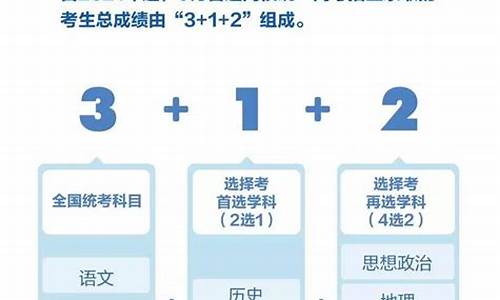您现在的位置是: 首页 > 教育资讯 教育资讯
高考高频动词短语26个_动词短语高考
tamoadmin 2024-05-21 人已围观
简介高中阶段有关come的短语:1、come true?实现,成真;成为现实2、come from?来自;出生于3、come back?回来;记起;恢复原状,重新流行4、come out?出现;出版;结果是5、come into?进入;得到6、come on?v. 快点;开始;要求;上演;跟着来;突然产生7、come up?走近;发生;开始;上升;发芽;被提出8、come in?进来;到达;流行起来9

高中阶段有关come的短语:
1、come true?实现,成真;成为现实
2、come from?来自;出生于
3、come back?回来;记起;恢复原状,重新流行
4、come out?出现;出版;结果是
5、come into?进入;得到
6、come on?v. 快点;开始;要求;上演;跟着来;突然产生
7、come up?走近;发生;开始;上升;发芽;被提出
8、come in?进来;到达;流行起来
9、come here?来这里
10、come up with?提出;想出;赶上
11、come with?与……一起供给;伴随……发生;从……开始
12、come down?下来,降落;流传下来;倒塌;落泊,失势
13、come near?走进;险些;可与…相比(多用于否定句)
14、come and go?来来往往,来来去去
15、come for?为某种目的而来取;向…冲来;对…进行袭击
16、come together?vi. 集合
17、come over?过来;顺便来访;抓住
18、come across?v. 偶遇;无意中发现;讲得清楚明白;[口]给人…印象
19、come to school?上学
20、come out of?v. 由...产生;从...出来
扩展资料
come的用法
1、come的基本意思是“朝某中心点接近、到达某地点或达到某种状态”。
2、come可以表示“来临,降临”,常用以指时间或事件按规律或自然法则等“顺理成章”地到来,也可指和他人在一起来参加某活动。
3、“come+静态动词的不定式”构成复合谓语,可表示一种情况变化的过程,如由“不知”到“知之”,由“不清楚”到“清楚”,由“不理解”到“理解”,即给静态动词一个起点,而使其具有动态意义,且具有“终于”的意味。
4、现在分词与come连用,可表示伴随动作〔状态〕,指某人或某事物按某种方式行进或某人在行进中做某事,也可表示目的。
5、come在祈使句中一般不接动词不定式表示目的,而多用“come?and to/ - v ”结构,在美式英语中,尤其是口语中and常可省略。
6、come可以用作系动词,接形容词作表语,意思是“变得,成为”,常常指好的事情。
7、come除在成语或谚语中外一般不用于被动结构,但其过去分词可和be连用构成系表结构。
8、come的进行时可表示按计划或安排即将发生的动作,这时一般有表示将来的时态或特定的上下文。若表示过去将来的情况须用was/were coming,但come通常不用be going to结构。
9、come是非延续性动词,不与表示一段时间的状语连用。
高考英语非谓语动词巧记巧用
一、接不定式和接动名词意义不同的动词和短语
在下列8个动词和短语动词后接不定式和接动名词意义不同:
remember to do(记住去做) remember doing(记得做过)
forget to do(忘记去做) forget doing(忘记做过)
regret to do (遗憾地做) regret doing(后悔做了)
try to do(设法做) try doing(试做)
go on to do(接着做另一事) go on doing(继续做同一事)
mean to do(打算做) mean doing(意味着)
stop to do(停下来去做) stop doing(停止做)
can’t help to do(不能帮助做) can’t help doing(情不自禁做)
1. —You were brave enough to raise objection at the meeting.
—Well, now I regret ________ that. (全国卷)
A. to do B. to be doing
C. to have done D. having done
分析答案选D。由语境可知“我”“后悔”在会上提出异议,应接动名词。
2. —The light in the office is still on.
—Oh,I forgot ________. (全国卷)
A. turning it off B. turn it off
C. to turn it off D. having turned it off
分析答案选C。表示忘记做某事,事情还没做,forget后接不定式。
3. In some parts of London, missing a bus means ________ for another hour. (上海卷)
A. waiting B. to wait
C. wait D. to be waiting
分析答案选A。由语境可知句中的mean表示“意味着”,后接不定式。
4. She reached the top of the hill and stopped ________ on a big rock by the side of the path. (全国卷)
A. to have rested B. resting
C. to rest D. rest
分析答案选C。休息是停下来的目的,且发生在stop之后,用接不定式的一般式。
5. Go on ________ the other exercise after you have finished this one. (全国卷)
A. to do B. doing
C. with D. to be doing
分析答案选A。表示做完一事后“接着做”另一事,go on后接不定式。
二、表示未成实现的愿望或打算的动词和短语
表示未曾实现的愿望或打算,即表示“本打算 / 想 / 希望做某事”但事实上却没做的事情,用plan, intend, mean; want, hope, wish, expect等动词的过去完成时,加不定式的一般式,或者这类动词的一般过去时,加不定式的完成式;was / were, would / should like加不定式的完成式;was / were going加不定式的一般式。如:
I would love ________ to the party last night but I had to work extra hours to finish a report. (全国卷)
A. to go B. to have gone
C. going D. having gone
分析答案选B。由句意可知,是表示过去未曾实现的期望,用“would love+不定式完成式”。句意是:昨晚我本想去参加聚会的,但是…(from www.nmet168.com)
三、要接动名词的含有介词的常用句型
在介词后一般用动名词,下面是一些含介词的固定句式(其中有的介词有时会被省略):prevent / stop / keep sb. / sth. from doing (阻止…做…);spend / waste time or money in doing (在做…方面花费 / 浪费时间或金钱);How / What about doing sth. (做…怎么样?);have some difficulty / trouble in doing (在做…方面有些困难);have a hard time in doing sth. (做某事很艰难); there is no sense in doing(做…是没有理由 / 道理的);thank (excuse / admire / praise / blame / scold / punish) sb. for doing sth. (因做某事而感谢 / 羡慕 / 表扬 / 责备某人)等。如:
1. Having been ill in bed for nearly a month, he had a hard time ________ the exam. (福建卷)
A. pass B. to pass
C. passed D. passing
分析答案选D。因为have a hard time (in) doing sth. 在做某事方面有困难。
2. According to a recent U. S. survey, children spend up to 25 hours a week ________ TV. (上海卷)
A. to watch B. to watching
C. watching D. watch
分析答案选C。spend some time (in) doing sth. 做某事花了多长时间。
3. I believe that’s the best way to prevent such a thing ________ again. (全国卷)
A. to happen B. from happening
C. happened D. happen
分析答案选B。prevent sb. / sth. from doing 阻止…做…。
4. Did you have trouble ________ the post office? (全国卷)
A. to have found B. with finding
C. to find D. in finding
分析答案选D。have difficulty / trouble (in) doing sth. 在做方面有困难。
四、to是介词的常用固定结构
to是介词和固定词组很多,常见的有:look forward to(盼望), devote…to / be devoted to(致力于), be / get used to(习惯), lead to(导致), get down to(开始认真), pay attention to(注意), refer to(谈到), point to(指向), turn to(转向), object to(反对), equal to(等于、能胜任), belong to(属于)等。如:
1. Mr. Reed made up his mind to devote all he had to ________ some schools for poor children. (上海卷)
A. set up B. setting up
C. have set up D. having set up
分析答案选B。devote…to…中to是介词,接动名词;all是devote的宾语,he had是省略了关系代词that的定语从句。
2. The discovery of new evidence led to ________. (上海卷)
A. the thief having caught B. catch the thief
C. the thief being caught D. the thief to be caught
分析答案选C。lead to中的to是介词,后接动名词;逻辑主语the thief与catch是被动关系,所以用动名词的被动式(from www.nmet168.com)。
3. She looks forward every spring to ________ the flower-lined garden. (上海卷)
A. visit B. paying a visit
C. walk in D. walking in
分析答案选D。look forward to中to是介词,后接动名词。再说,若visit用作名词,后面要加介词to,才可接宾语,排除A和B;walk作名词,表示散步,仅用于go for / take / have a walk等结构,排除C。









